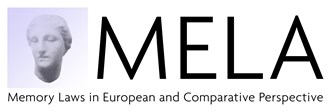[Recording] Online expert panel on missing persons and memory governance
Published 25 September 2020
On Thursday 24 September, from 16.00-17.30 CET, the Asser Institute and the UN Working Group on Enforced or Involuntary Disappearances co-hosted an online expert panel on ‘Missing persons and memory governance’. The online panel was part of the MELA-project, and it discussed memory laws in the context of enforced disappearance. The main topics of the event were the right to truth and combatting state-sponsored narratives of enforced disappearances.
Watch the full recording here:
[embed YouTube link
Background
This online panel was part of the agenda of the United Nations Working Group on Enforced or Involuntary Disappearances. It gathered leading experts in memory law and enforced disappearances and invited us to question how these seemingly disparate topics might relate to each other.
The online panel will covered the following themes:
1) The importance of memory governance in the context of enforced disappearances,
2) Operationalising the right to truth,
3) The relationship between memory governance and the international legal regime for missing persons, and
4) Combating state-sponsored false narratives through the voices of victims and civil society.
The experts each held presentations and then the floor was opened for questions and discussion.
Expert panelists
Dr Uladzislau Belavusau, Senior researcher, T.M.C. Asser Instituut, former MELA Project leader for the Dutch team.
Presentation: ‘The MELA Declaration on Law and Historical Memory: Towards the constitutionalisation of memory politics?’
Dr Grażyna Baranowska, Senior researcher, Institute of Law Studies, Polish Academy of Sciences, former MELA postdoctoral researcher
Presentation: ‘Memory governance in the context of enforced disappearances’
Ms Kathryne Bomberger, Director-General, International Commission on Missing Persons
Presentation: ‘Securing the rights of families of the missing: A state responsibility’
Dr León Castellanos-Jankiewicz, Researcher, T.M.C. Asser Instituut, former MELA postdoctoral researcher.
Presentation: ‘Truth and transitional Justice in Latin America’
Mr Bernard Duhaime, Member of the United Nations Working Group on Enforced or Involuntary Disappearances
Presentation: ‘Enforced disappearances, truth, memory and international law.’
The discussion will be led by Dr Aleksandra Gliszczyńska-Grabias, Assistant professor, Institute of Law Studies, Polish Academy of Sciences, former MELA Project Leader for the Polish team.
Rebecca Mignot-Mahdavi, Researcher at the T.M.C. Asser Instituut, will chair the panel.
About the MELA project
The Project on Memory Laws in European and Comparative Perspective (MELA) was a four-nation, EU-sponsored consortium gathered to examine memory laws throughout Europe and the world, exploring their history, their recent developments and their connections to democratic values such as human rights and the rule of law. The three-year project received a grant of over € 1.2 million by Humanities in the European Research Area (HERA) to conduct research on memory from September 2016 until August 2019. The consortium included four teams, which were based respectively at Queen Mary University London, Bologna University, the Polish Academy of Sciences and the T.M.C Asser Instituut in The Hague.
The outcome of the MELA project is ‘the Model Declaration on Law and Historical Memory,’ which underlines the ethical responsibilities related to the legal governance of the past, and condemns deliberate state-based distortions of historical facts as a violation of internationally recognised rights. The Model Declaration argues that legal means can be used to safeguard critical enquiry into a state’s past human rights violations and presents best practices to this end.



